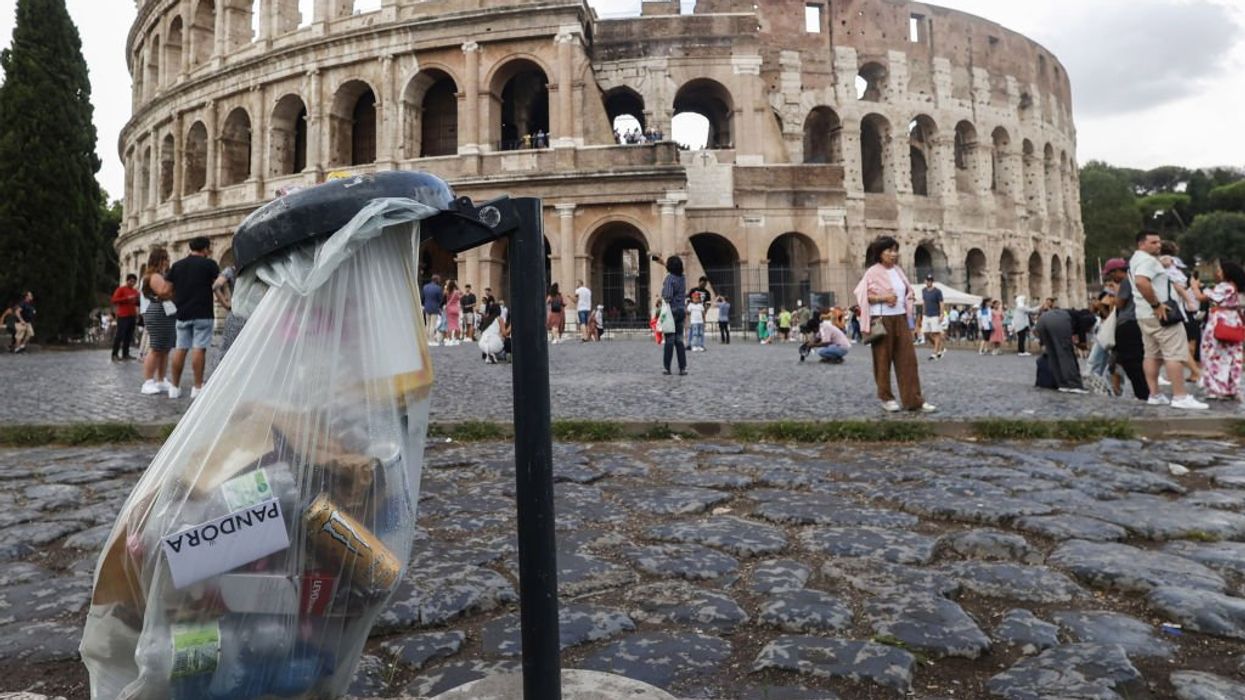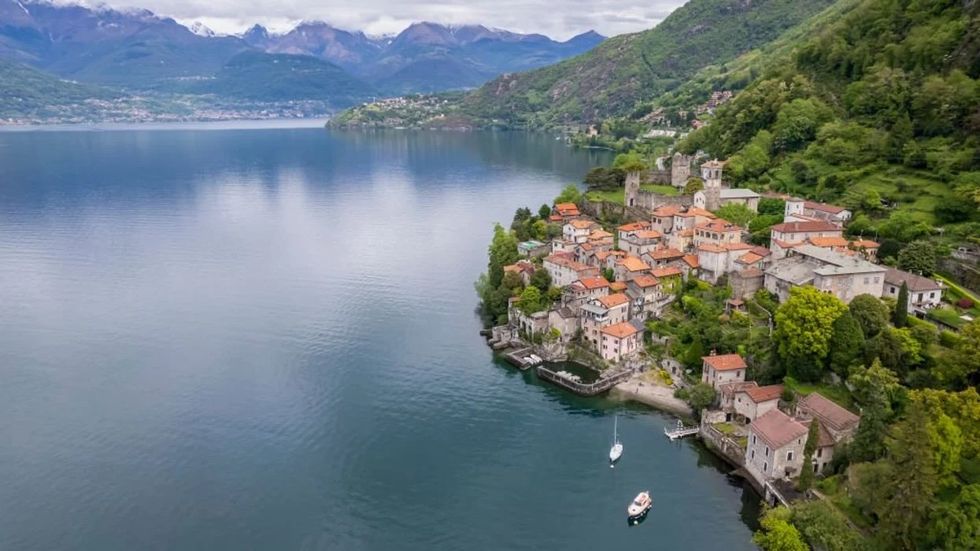
Anadolu/Getty Images
In Europe, the stifling bureaucracy extends even to the trash bin.
Did you know ancient Rome was "sustainable"?
Romans probably didn't use that exact buzzword, but apparently, they were recycling pioneers. When they weren't creating a mountain made out of garbage, that is.
In Italy, you don’t have one trash can in your house, you have five. Yes, five separate trash cans for the different kinds of trash you accumulate throughout your day.
As someone who's been to Italy recently, I can tell you that that legacy of recycling lives on. Frankly, it's a mixed bag.
If fact, the convoluted waste disposal system in that beautiful Mediterranean peninsula is the perfect embodiment of the current state of Europe.
In America, you take your trash, and you throw it in the can underneath the kitchen sink. Then, when that bag is full, you take it out and throw it in the big can that you set out next to your driveway every week. It’s a simple system. Understandable and logical.
In Italy, you can’t just throw your trash — any trash! — in the bin next to the fridge.
No, in Italy you don’t have one trash can in your house, you have five. Yes, five separate trash cans for the different kinds of trash you accumulate throughout your day. You have one for carta (paper), one for umido (organic materials), one for plastica (plastic), one for vetro (glass), and one for barattoli (metals).
Of course, five different trash cans means five different trash days. Better not miss!
But the fun doesn't stop there: The days aren’t the same every week.
In some towns, they are in a state of continual change. Just when you've gotten used to Monday being umido day, they switch it up to vetro. Until they decide it should be plastica.
Not to worry. You can always print out a schedule from the local trash office. Just remember to dispose of it on carta day.
In Italy, managing your garbage is basically a part-time job.
And it’s not only the trash. There are a bunch of other systems and regulations that basically force you to waste time doing pedantic, pointless tasks, filling out some arbitrary paperwork that will be read by no one but you are legally required to file anyway, or going to the doctor to get a note verifying that you are healthy enough to go to the gym (yes, this is a real requirement to sign up for a gym membership in Italy).
All these reasons, and many more, are why they don’t get anything done there.
I love Italy. It is, without a doubt, one of my favorite places to visit. But it’s just the truth that Italians don’t really get anything done these days. Their economy is in a perpetual state of struggle, no one has kids, and I am not even sure there is a word for entrepreneur or start-up in Italian.
This isn’t just speculation. A good friend in Italy has informed me that the official position of the government is to, more or less, discourage small business and further entrench the larger established corporations started more than half a century ago.
RELATED: When in Italy: Zipping to Lake Como in an Alfa Romeo Giulia

Europe today is basically a museum. It’s the most beautiful museum there is, but it’s a museum. It’s not because the people are actually incapable of doing anything. It’s not because Europe as an entity is inherently incapable of seizing its destiny. All our Western history and culture up to a certain point came from Europe. America sprouted from Europe.
But no one in Europe can do anything today because everyone there suffers under an obscene, time-wasting, Kafkaesque bureaucracy perfectly exemplified by the ludicrous trash system in Italy.
Yes, of course, many there are content with this system. Quite a few really do believe that separating the trash into five bins is a normal part of life and a sign that a society cares for the environment, the future, the children, and Mother Earth ... or something like that.
You might be thinking that separating the trash doesn’t sound like that big of a deal. You might be of the opinion that I’m just a stick-in-the-mud, resisting something just because it’s new. You might imagine that it can’t really take that long. You may say, “So big deal, you just take a little longer with the garbage, you just plan ahead a little more.”
That might sound right if you are doing this whole separating business one time as a fluke, but when you apply this system to everyday life, over and over again, with no escape, it wears people down.
That’s one of the ways European over-regulation turns society into an ossified museum. It’s not just the fact that it is legally difficult to do many things that should not be legally difficult to do. It’s that the pointless inconveniences created by the over-regulation wear people down mentally. At scale, over time, the trash (and every other absurd system similar to the trash) takes a toll on people. The very spirit of a people becomes different.
Many of the regulations in Europe are designed to protect something. Sometimes it’s the environment, sometimes it’s the traditional architecture, sometimes it’s the people. Those things are all fine. Most of us care about protecting those things to some degree.
But you can take protection too far, and if you protect too many things too much, society ends up feeling like a museum where you look but don’t touch. That’s kind of how it feels for many Europeans.
You know those speed bumps they put on residential roads so that you slow down? Imagine if those were everywhere, on every road. That’s kind of what all the overbearing regulations feel like. That’s the general kind of system at every level.
If “move fast and break things” is American, “move slow and sometimes repair stuff” is European. It’s good to repair stuff, it’s nice that Europe maintains much of its cultural inheritance. Perhaps, that’s its role in our era, one of a museum curator. And the Italian trash system and its demand that you fastidiously separate your waste is, in some strange way, related to that spirit.
But that’s not our role in America. That’s not our spirit. We aren’t a museum, we look and touch and change. We don’t have time to waste separating the trash. We have things to do, stuff to build, a future to seize. And the truth is, I’m not sure you can do any of those things if you spend all your time and energy separating your trash into five careful little bins.
O.W. Root